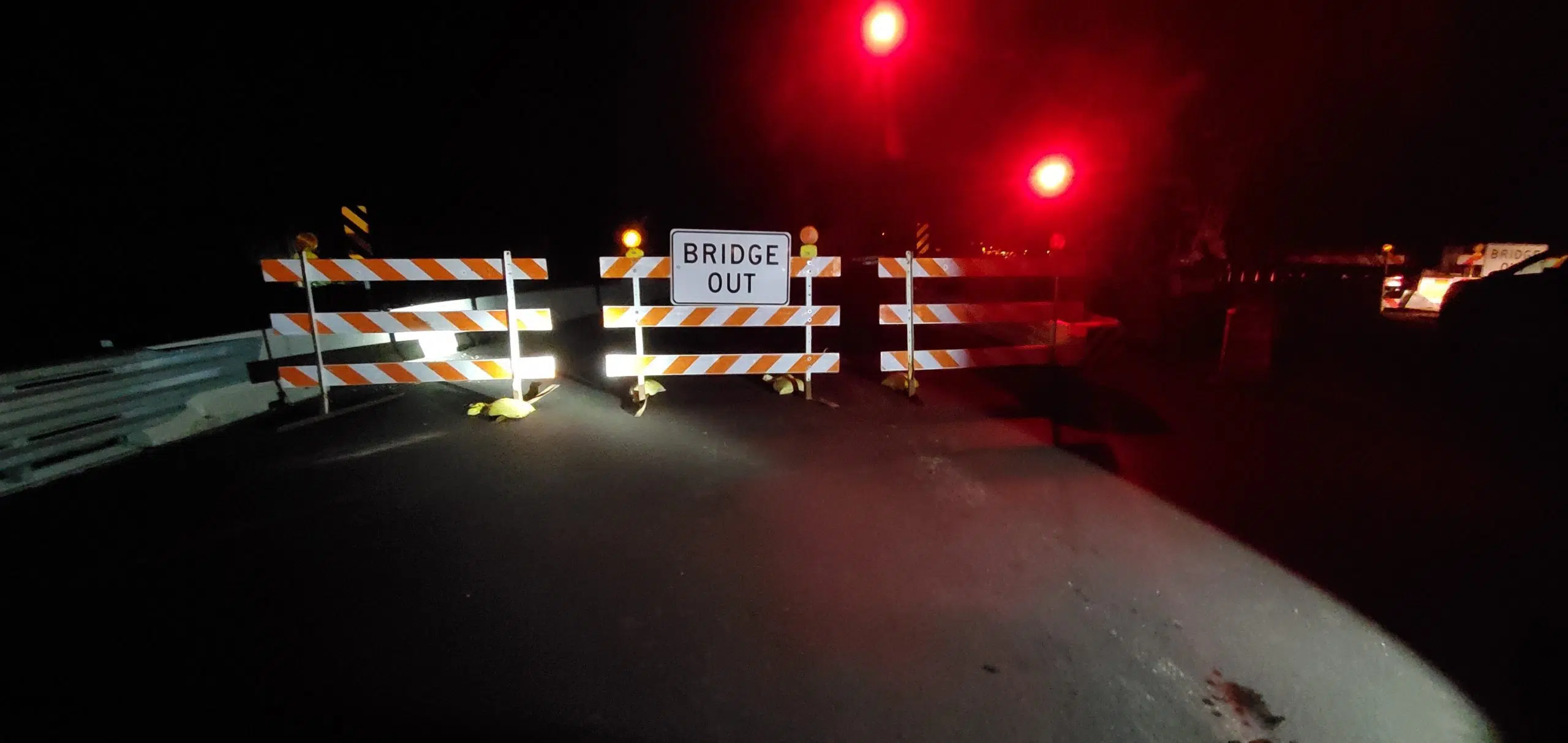
Flooding at Pine Creek Bridge on Hwy 64. Image courtesy: WAOW TV
CONLEY COMMENTARY (WSAU) – Road barricades are about to go up again on the Lac du Flambeau reservation. About 50 private landowners, who use tribal roads to get to and from their properties, will no longer be able to drive to their homes.
Last winter, when blockades were first put in place, these homeowners had to walk across frozen Ross Allen Lake. They carried groceries to and from their homes on plastic children’s sleds. A temporary easement was agreed to a few weeks before the ice melted.
This year the tribe’s new deadline is September 12th. The lake won’t be frozen by then. The homeowners will be out of luck.
The tribe issued a written statement last winter: “We understand that this is a difficult time for … residents, and have tried to show compassion for their predicament.” That’s what comes out of the southbound end of a northbound mule. The tribe is inflicting hardship on a group of homeowners to try to extract money for road access.
The amount that the tribe is asking for, $10-million, covers back-payments for several years since the last road easement agreement expired. The town offered $1.8-million for a 50-year agreement. Some tribal members indicated an agreement could be reached if the tribe is granted more land that’s adjacent to their reservation.
Road paving – not road maintenance – costs about a million dollars per mile. That’s not what this money would be used for. Think of this as an access fee; an amount that’s being demanded because a relatively small number of outsiders need access to the reservation to go to and from their houses.
This is also a failure of political leadership. Governor Evers says this is a private dispute. Of course, it is not. Reasonable access to and from ones home is a public policy issue. The governor has refused to get involved. The Biden Administrations Bureau of Indian Affairs has been so radicalized that they are useless; they support the roadblocks. Any land-swap agreement can’t go forward without the Governor and the BIA at the negotiating table. Congressman Tom Tiffany says tribal roads are maintained, in part, with tax dollars. He contends that the roadblocks are illegal. For the tribe to have its own congressman speak out against them is a risk. Congressmen have input into what is and isn’t included in tribal funding bills.
In our nation’s past, our treatment of Native Americans has been shameful. Our ways of making amends to the tribes have been imperfect. That may be part of the sub-context of this dispute. But being such bad neighbors to these landowners is indefensible.
Chris Conley





Comments